Four pillars for improved sleep
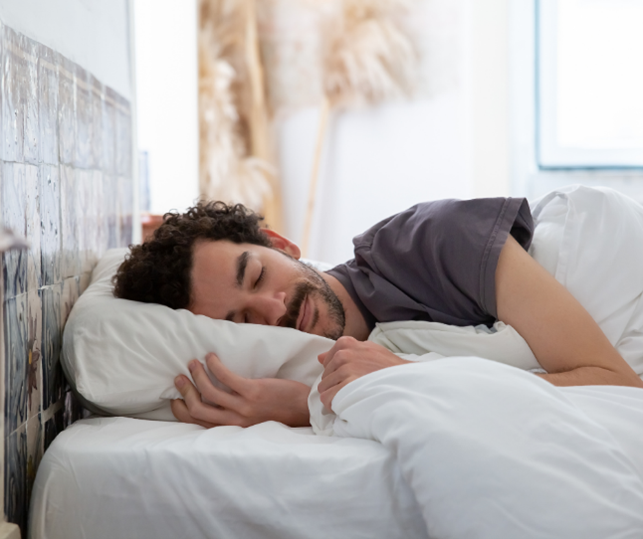
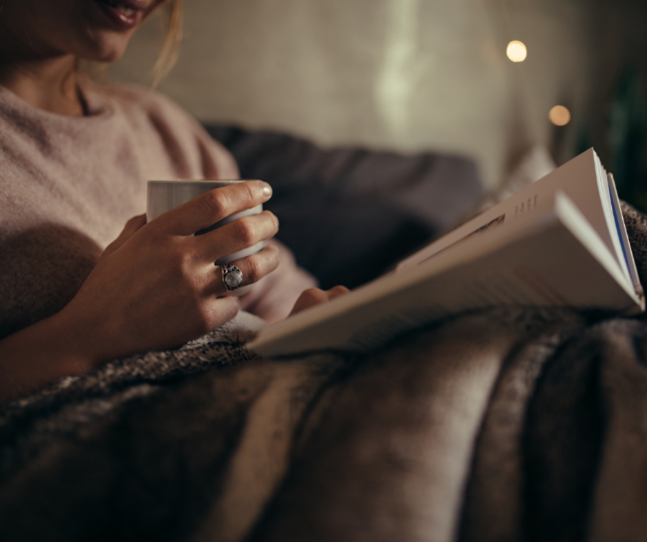
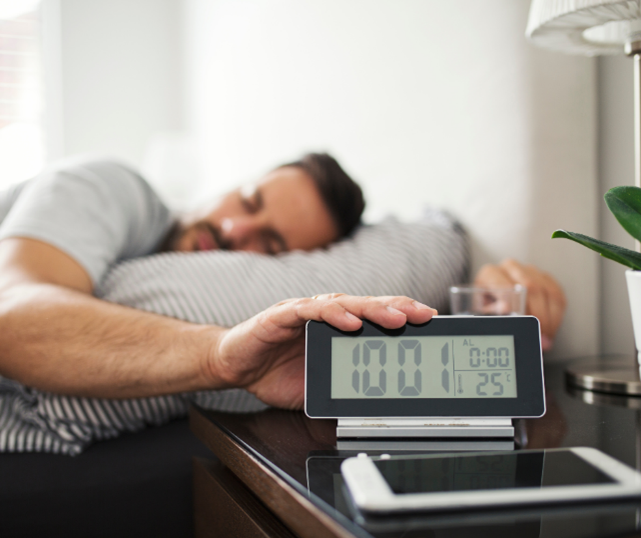
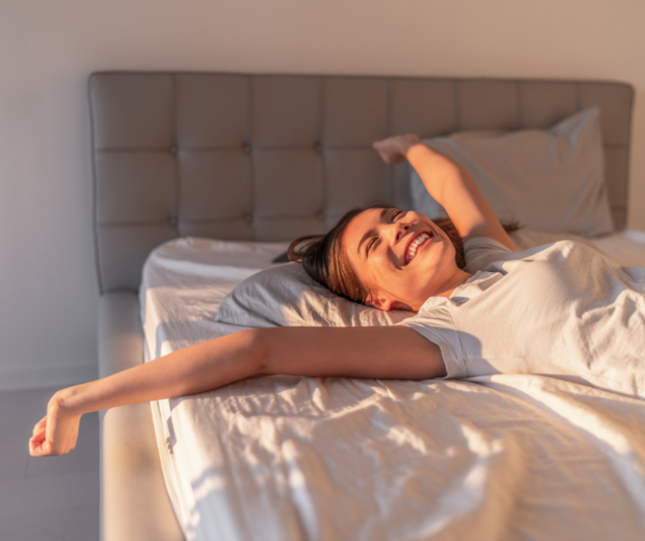
Fed up with a restless night’s sleep becoming the normality? A good night’s sleep is essential for both our physical and mental well-being, with experts recommending eight hours a night to feel refreshed and rested. Yet, according to our research, over half of UK adults (54%) struggle to get the sleep they need.i In fact, our survey found that nearly half of respondents (46%) operate on less than 6 hours sleep per night.i The primary issues identified include difficulty falling asleep (52%) and frequent awakenings during the night (54%).i
Commenting on the findings, sleep expert and author, Nerina Ramlakhan* says:
“Sleep plays a vital role in our overall well-being, yet according to research, poor sleep is starting younger and causing a myriad of negative consequences for the nation. Whilst factors such as too much caffeine, the use of electronic devices before bed, or an irregular sleep schedule contribute to this trend, nearly half of respondents (48%) attribute their sleepless nights to stress and anxiety.i Given the current landscape of economic uncertainties, geopolitical tensions, and the persistent challenges of modern life, it's unsurprising that many individuals are finding it increasingly difficult to achieve good quality sleep.”
The impact of sleeplessness on health
Sleep deprivation poses a myriad of risks, spanning from common ailments like the cold to more severe conditions such as depression, dementia, and the potential for a stroke or heart attack.ii Additionally, the likelihood of obesity and diabetes rises, while mood, memory and decision-making abilities are each impacted.ii
Beyond its detrimental effect on health, sleep deprivation carries high economic costs. A recent study found that poor sleep is costing the UK approximately £50 billion per year, with more than 200,000 working days lost as a result.iii
Nerina Ramlakhan comments:
“In today's fast-paced world, balancing our busy lives with consistent, restorative sleep can be a real challenge. Establishing a personalised sleep-care routine that aligns with your lifestyle and promotes relaxation, gives you the best chance of achieving a revitalising night’s rest. This differs from person to person, but the concept remains the same; develop reliable practices that help you to unwind from the stressors of daily life and prioritise sleep.”
Nerina Ramlakhan’s four pillars for improved sleep:
Establish a consistent sleep schedule: “Aim to go to bed and wake up at the same time every day, even on weekends. Consistency helps regulate your body's internal clock and improves the quality of your sleep.”
Create a relaxing bedtime routine: “Develop calming bedtime rituals, such as reading a book, taking a warm bath, or practicing relaxation techniques like deep breathing or meditation. These activities signal to your body that it's time to wind down and prepare for rest, even helping to reduce levels of cortisoliv – the stress hormone.”
Optimise your sleep environment: “Make your bedroom conducive to sleep by keeping it cool, dark, and quiet. Invest in a comfortable mattress and pillows, and consider using blackout curtains, white noise machines, or earplugs to block out disturbances.”
Limit stimulants and screen time before bed: “Minimise consumption of caffeine and avoid heavy meals, nicotine, and alcohol close to bedtime, as they can disrupt sleep patterns. Additionally, reduce exposure to electronic devices such as smartphones, tablets, and computers, as the blue light emitted can interfere with the production of melatoninv, a hormone that regulates sleep.”
By prioritising these pillars and incorporating them into your daily routine, you can help improve the quality and quantity of your sleep.
For those looking for additional support, you may also benefit from the use of a traditional herbal remedy. Kalms Night One-A-Night contains valerian root extract, traditionally to relieve sleep disturbances. Comes in a convenient one tablet a night dose. Shop now here.
*Please note, whilst Nerina Ramlakhan offers expert advice and commentary, she does not endorse the Kalms range.
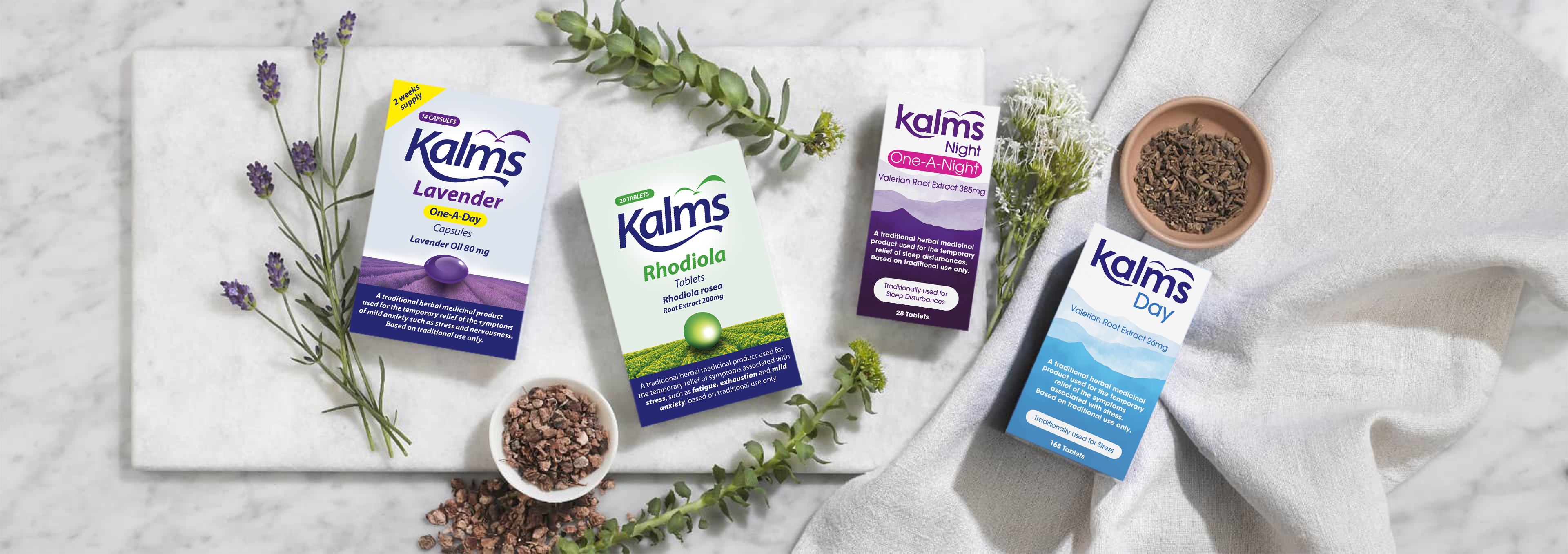
[i] The Kalmfulness Index. A nationally representative study on 3,726 British respondents. Commissioned by Kalms. 2023.
[ii] Sleep deprived? here is what lack of sleep does to your body (no date) Healthline. Available at: https://www.healthline.com/health/sleep-deprivation/effects-on-body#effects (Accessed: 16 February 2024).
[iii] Team, P. (2023) The impact of poor sleep in the workplace, Primed. Available at: https://www.primed.co.uk/the-impact-of-poor-sleep-in-the-workplace/ (Accessed: 16 February 2024).
[iv] 11 natural ways to lower your cortisol levels (2023) Healthline. Available at: https://www.healthline.com/nutrition/ways-to-lower-cortisol (Accessed: 16 February 2024).
[v] Blue Light has a dark side (2020) Harvard Health. Available at: https://www.health.harvard.edu/staying-healthy/blue-light-has-a-dark-side (Accessed: 16 February 2024).
- 15th March 2024
